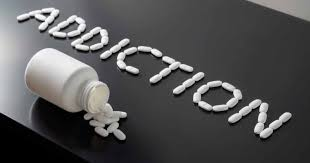Rehab for Painkillers
Immediate
Placement Available at our Top-Rated Treatment Centers.
Please call us at (855) 410-4488. We work
with most major insurance providers and offer flexible payment
options!
Atrium Addiction Care offers a variety of treatment choices and programs for individuals struggling with drug or alcohol addiction. Our inpatient treatment programs are designed for those who have more severe substance use problems and require 24-hour care. We admit both voluntary and involuntary patients.

The issue of addiction to prescription painkillers, has become an increasingly prevalent concern in recent years. In response, many rehabilitation centers have emerged that offer specialized treatment for those struggling with this type of addiction.
Atrium Addiction Care is one such facility located in North Carolina that provides comprehensive care for individuals seeking relief from the devastating effects of painkiller addiction. At Atrium Addiction Care, patients receive individualized treatment plans designed to meet their unique needs and circumstances.
The center offers a range of therapeutic services, including cognitive-behavioral therapy, group counseling sessions, and medication-assisted treatment options. Through these evidence-based interventions, patients are able to develop coping mechanisms and skills necessary to overcome their addiction and achieve long-term recovery.
With its commitment to compassionate care and clinical excellence, Atrium Addiction Care stands as a leading provider of rehabilitation services for individuals grappling with painkiller addiction in North Carolina.
Understanding Painkiller Addiction
Painkiller addiction has become a widespread problem in many parts of the world, including North Carolina. The causes of opioid epidemic and painkiller addiction are complex and multifaceted.
One major factor is the misuse or overuse of prescription painkillers for chronic or acute pain management. Individuals who suffer from chronic pain may develop an addiction to these medications due to their potent analgesic effects.
Symptoms of painkiller addiction can vary depending on the severity and duration of drug use. Some common signs include changes in behavior, mood swings, decreased motivation, and increased isolation from family and friends.
In some cases, individuals with severe addictions may experience physical symptoms such as nausea, vomiting, tremors, seizures, and respiratory distress.
Treatment options for painkiller addiction include medication-assisted therapies (MAT), behavioral therapies, support groups, and rehabilitation programs like Atrium Addiction Care in North Carolina. Recovery techniques involve a combination of pharmacological interventions and evidence-based psychotherapies that target underlying psychological factors contributing to substance use disorders and abuse disorders.
Preventive measures to avoid opioid addiction entail responsible prescribing practices by physicians, limiting access to opioids through controlled distribution channels, patient education on safe medication use while monitoring possible side effects or dependence development during long-term treatment regimens.
Therefore; it is vital for healthcare professionals to recognize the early warning signs of painkiller addiction since timely intervention can prevent irreversible consequences related to serious drug abuse, overdose or ongoing health problems associated with prolonged exposure to addictive substances.
The Dangers Of Opioid Dependence
Opioid dependence is a serious and growing problem in North Carolina, with increasing numbers of individuals seeking rehabilitation for painkiller addiction. The risks associated with an opioid use disorder are numerous, including respiratory depression, overdose, and even death. In fact, according to the National Institute on Drug Abuse (NIDA), over 130 people die every day from an opioid overdose.
Recognizing early warning signs of opioid dependence can be challenging, as symptoms may vary depending on factors such as the type of drug used or individual predisposition. However, some common indicators include increased tolerance to opioids, withdrawal symptoms when not using drugs, and continued use despite negative consequences. Family members and loved ones may also notice changes in behavior or mood that could signal a problem.
The impact of opioid dependence extends beyond individual health concerns and can have significant societal implications. For example, healthcare costs related to opioid addiction continue to rise each year. Additionally, families may experience financial strain or social stigma due to their loved one's opioid addiction.
Alternative pain management strategies, such as physical therapy or non-opioid medications should be considered as viable alternatives to combat this issue.
Furthermore, it is crucial for medical professionals to educate patients about the risks associated with these prescription drugs before prescribing them for pain management purposes. By promoting awareness and offering alternative treatments options where applicable, we can work together towards addressing this epidemic without compromising patient wellbeing or quality of life.
Atrium Addiction Care's Comprehensive Rehab Program

Atrium Addiction Care's comprehensive rehab program for painkiller addiction in North Carolina is designed to provide patients with the best possible chance of achieving long-term recovery. The program takes a holistic approach, addressing not only physical dependence but also psychological and emotional factors that contribute to addiction.
Intensive therapy forms the core of Atrium Addiction Care's treatment plan and includes individual counseling sessions, group therapy sessions, and family therapy. The intensive therapy provided by Atrium Addiction Care helps individuals struggling with painkiller addiction to understand the root causes of their addiction and develop coping mechanisms that can help them overcome intense cravings.
Family involvement plays an essential role in this process, as it allows loved ones to gain a better understanding of their relative's struggles and provides support during the challenging times ahead. Additionally, relapse prevention strategies are taught throughout the treatment process so that those who complete rehabilitation have a solid foundation upon which they can build lasting sobriety.
Aftercare support is another critical aspect of Atrium Addiction Care's comprehensive rehab program for painkiller addiction. To ensure that patients remain committed to their recovery journey after leaving rehab, the facility provides ongoing support through outpatient services such as continuing care groups and follow-up appointments with therapists. This commitment to aftercare ensures that individuals struggling with painkiller addiction receive all necessary resources needed to maintain sober living beyond rehab.
Personalized Treatment Plans For Lasting Recovery
Atrium Addiction Care's comprehensive rehab program provides patients with an unparalleled level of care in their journey towards recovery from painkiller addiction. The program is designed to address the unique needs and challenges that each patient faces, ensuring that they receive customized care that is tailored to their individual circumstances. This approach allows for a more holistic treatment experience, which addresses all aspects of the patient's life, including physical, emotional, and mental health and well being together.
Holistic approaches are widely recognized as being effective in treating substance abuse disorders such as opioids as painkiller addiction. Atrium Addiction Care's rehab program incorporates a range of evidence-based therapies into its treatment plans, including cognitive-behavioral therapy (CBT), dialectical behavior therapy (DBT), and motivational interviewing (MI). These modalities help patients learn coping skills and strategies to manage cravings or triggers once they leave the facility.
Recovery does not end when one leaves the rehab center; it requires ongoing support networks, relapse prevention planning, and aftercare services. To ensure lasting recovery outcomes for patients who have completed their rehabilitation programs at Atrium Addiction Care, our team works closely with them to develop personalized aftercare plans.
By offering continued guidance quality treatment, and support post-treatment, we aim to minimize the risk of relapse and maximize long-term success in sobriety.
Medical Detox And Behavioral Therapy
Medical detox and behavioral therapy are essential components of a comprehensive painkiller addiction treatment program. The benefits of medical detox cannot be overstated, as it provides individuals with the necessary support to manage withdrawal symptoms safely.
Medical professionals can prescribe medications that alleviate discomfort and reduce cravings while ensuring optimal physical and mental health during this crucial phase.
In conjunction with medical detox, various types of behavioral therapies can address the psychological aspects of addiction. Some common approaches include cognitive-behavioral therapy, contingency management, and motivational interviewing. These treatments aim to modify negative thought patterns, reinforce positive behaviors, and enhance motivation for recovery.
This combination approach has been found to increase long-term success rates in overcoming substance abuse disorders.
Support groups also play an integral role in the recovery process by providing opportunities for peer-to-peer interaction and emotional support. Group members share their experiences, offer guidance, and hold each other accountable for maintaining sobriety.
Dual diagnosis treatment is another critical aspect medication assisted treatment that addresses co-existing mental health conditions alongside addiction. Finally, aftercare programs help individuals transition back into everyday life while continuing to receive ongoing support from healthcare professionals.
Overall, medical detox combined with various forms of behavioral therapies offers individuals struggling with painkiller addiction a path towards lasting recovery. The inclusion of dual diagnosis treatment and aftercare programs further strengthens this approach's effectiveness.
By addressing both the physical and psychological aspects of addiction through multiple avenues of care, individuals have access to comprehensive resources that promote healing and sustained wellness.
Empowering Patients To Live Drug-Free Lives
In order for patients to successfully overcome addiction, it is crucial that they receive appropriate support. Patient support can come in many forms, ranging from one-on-one counseling sessions with trained professionals to group therapy and community involvement. Support groups allow patients to connect with others who are going through similar experiences. This provides a sense of community and belonging which can be invaluable when trying to recover from addiction.
Alternative therapies have also proven effective in helping individuals overcome addiction. These therapies include activities such as yoga, meditation, art therapy, and acupuncture. Alternative therapies help patients combat stress and anxiety while providing healthy coping mechanisms for the future. Furthermore, these activities encourage self-discovery and personal growth which can aid in relapse prevention.
Aftercare planning is an essential component of rehab for painkillers. It ensures that patients will continue receiving necessary care once their time in treatment has ended. Aftercare plans typically involve continued counseling or therapy sessions along with regular check-ins with healthcare professionals.
Additionally, aftercare planning may include connecting patients with local support groups or alternative therapy programs to ensure ongoing recovery success.
By emphasizing patient support, community involvement, alternative therapies, relapse prevention techniques and aftercare planning strategies we can empower individuals struggling with addiction towards long-term recovery success. By equipping them with helpful resources during treatment and beyond its completion – we set them up for sustainable sobriety by placing emphasis on holistic healing methodologies alongside traditional addiction treatments like medication-assisted detoxification (MAT), cognitive-behavioral therapy (CBT), and more.
By prioritizing these key components of addiction and opioid treatment programs, we can help patients overcome the challenges that come with addiction and support them in living healthy drug-free lives.
Conclusion
Painkiller and heroin addiction is a serious and growing problem in North Carolina, with countless individuals suffering from the dangers of opioid dependence. Atrium Addiction Care offers a comprehensive rehab program designed to help patients overcome their addiction and achieve lasting recovery.
Through personalized treatment plans that include medical detox and behavioral therapy, patients are empowered to live drug-free lives. At Atrium Addiction Care, our goal is to provide effective, compassionate care for those struggling with painkiller addiction and mental illness.
With our evidence-based approach to treatment, we work closely with each patient to develop a customized plan that addresses their unique needs and goals. By combining medical intervention with therapeutic support, we aim to give patients the tools they need to break free from addiction and reclaim their lives.
